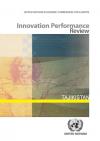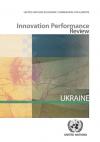Publications
Displaying Results 21 - 39 of 39
- English
Innovation is a pillar of the United Nations 2030 Agenda for Sustainable Development and of approaches to economic development across the world. This is particularly prominent in Belarus, with its legacy of world-class scientific research and industrial production, where the Government has reformed its national innovation system in line with UNECE’s recommendations in its first UNECE
- English
The public sector plays a very significant role in modern economies. As in the business sector, innovation can be a major source of productivity growth, cost savings and improvements in service quality; benefits which then also positively affect businesses and citizens who rely on an efficient and effective public sector.
The ability of the public sector to innovate is therefore
- English
Innovation has never been higher on the economic policy agenda, and features prominently in the United Nations 2030 Agenda for Sustainable Development. The Republic of Tajikistan has achieved strong economic and social development over recent years, and has made important steps in moving away from a factor-driven to an efficiency-driven model of growth. Innovation will be crucial to
- English
In modern, competitive economies, knowledge-based innovation is the foundation for economic development. Sustained growth and improved living standards can only be obtained by increasing productivity and introducing new and better products and services that compete successfully in the global market.
This publication is the result of a participatory policy advisory service
- English
Many transition economies in Europe and Central Asia are endowed with rich natural resources and biodiversity. At the same time, global climate change and associated extreme weather events are already affecting these countries, with serious economic and social consequences.
This Guide reflects the findings of assessments on innovation policy — with special reference to green technologies — that
- English
Innovation is a key driver of sustainable development and economic growth, and for meeting the Millennium Development Goals, as re-affirmed by the 2013 Annual Ministerial Review of the United Nations Economic and Social Council. The global financial crisis of 2008-2009, the effects of which are still being felt in many countries, has only reinforced the need for innovation as a way of recovering
- English
In modern, competitive economies, knowledge-based innovation is the foundation for economic development. Sustained growth and improved living standards can only be obtained by increasing productivity and introducing new and better products and services that compete successfully in the global market.
The Innovation Performance Review of Ukraine continues the series of national assessments of
- English
The Innovation Performance Review of Kazakhstan continues the series of national assessments of innovation policies initiated by the pilot Innovation Performance Review of Belarus. These policy advisory exercises draw on the experience accumulated by the UNECE in the identification of good practices and policy lessons in the area of knowledge-based development,
- English
Innovation is the key driver of economic growth and development in the medium to long term. It can be defined as the process of introducing new products, services and production processes into the market place and to create new profitable enterprises and higher-paying jobs on this basis. A well-balanced, affordable and reliable system of intellectual property rights has an important role to play
- English
The Innovation Performance Review of Belarus initiates a new focus of activity for the United Nations Economic Commission for Europe, which draws on the experience accumulated so far in the identification of good practices and policy lessons in the area of knowledge-based development.
This Review presents the main outcomes of a participatory policy advisory exercise undertaken at the request of
- English
This publication presents a collection of contributions by experts involved in the UNECE work on innovation and competitiveness policies carried out under the UNECE Committee on Economic Cooperation and Integration (CECI). The publication addresses a wide range of issues related to the promotion of innovation in the services sectors as well as policy lessons learned in this area drawing on the
- English
This guide provides practical advice on the different sources of finance available to innovative companies in the early stages of their development. It also presents the various policy options and instruments that can be deployed by the public sector to increase the supply of potentially successful innovative companies and to mobilise private financing to support the development of these
- English
Innovation in its many forms has been recognized as a critical dimension in improving economic performance in knowledge-driven economies. The innovation activity of firms is a key driver of competitiveness and economic growth. Although the process occurs at a company level through skillful management, a firm’s innovation performance can be enhanced by appropriate policy measures conducted in a
- English
At advanced stages of transition to a market economy, entrepreneurship and enterprise development come to the forefront of the development agenda. However, in countries with economies in transition (or “emerging market economies”), both new and operational companies often face formidable administrative and regulatory barriers to enterprise registration and operation. The United Nations Economic
- English
The world economy today is predominantly knowledge-driven and use of knowledge are the main drivers of growth, wealth creation and employment. The emergence of global knowledge-based value chains as the key drivers of global economic growth is both a challenge and an opportunity for businesses and countries, for national and international policymakers.
This compendium presents some of the
- English
Public-private partnerships (PPPs) in the delivery of public services have become a world wide phenomenon and are generating great interest. PPPs combine the best of both worlds, but they also present a severe organizational and institutional challenge for the public sector. To address the challenge, the UNECE has elaborated this guidebook for policymakers, government officials and the private
- English
This Review focuses on knowledge and innovation as key factors for competitiveness and growth in the modern economy. Policies seeking to create an environment conducive to the generation and diffusion of innovation are increasingly taking a central role in national and international policy debates. The review draws from national experiences, good practices and lessons learned from UNECE member
- English
Effective support to innovation requires specialized financial intermediaries that are able to provide not only money but also managerial and technical expertise. The review focuses on the provision of early-stage equity financing to innovative technology-based enterprises with a view to identifying policy options and recommendations to facilitate the access of these enterprises to early finance
- English
The development of information and communications technologies (ICTs) gives rise to a variety of legal and regulatory issues for policymakers, from the validity of electronic methods of contracting and the security risks associated with them, to concerns over cybercrime and the ability to protect intellectual property rights online. This guide has been intended for use as a reference manual by



















